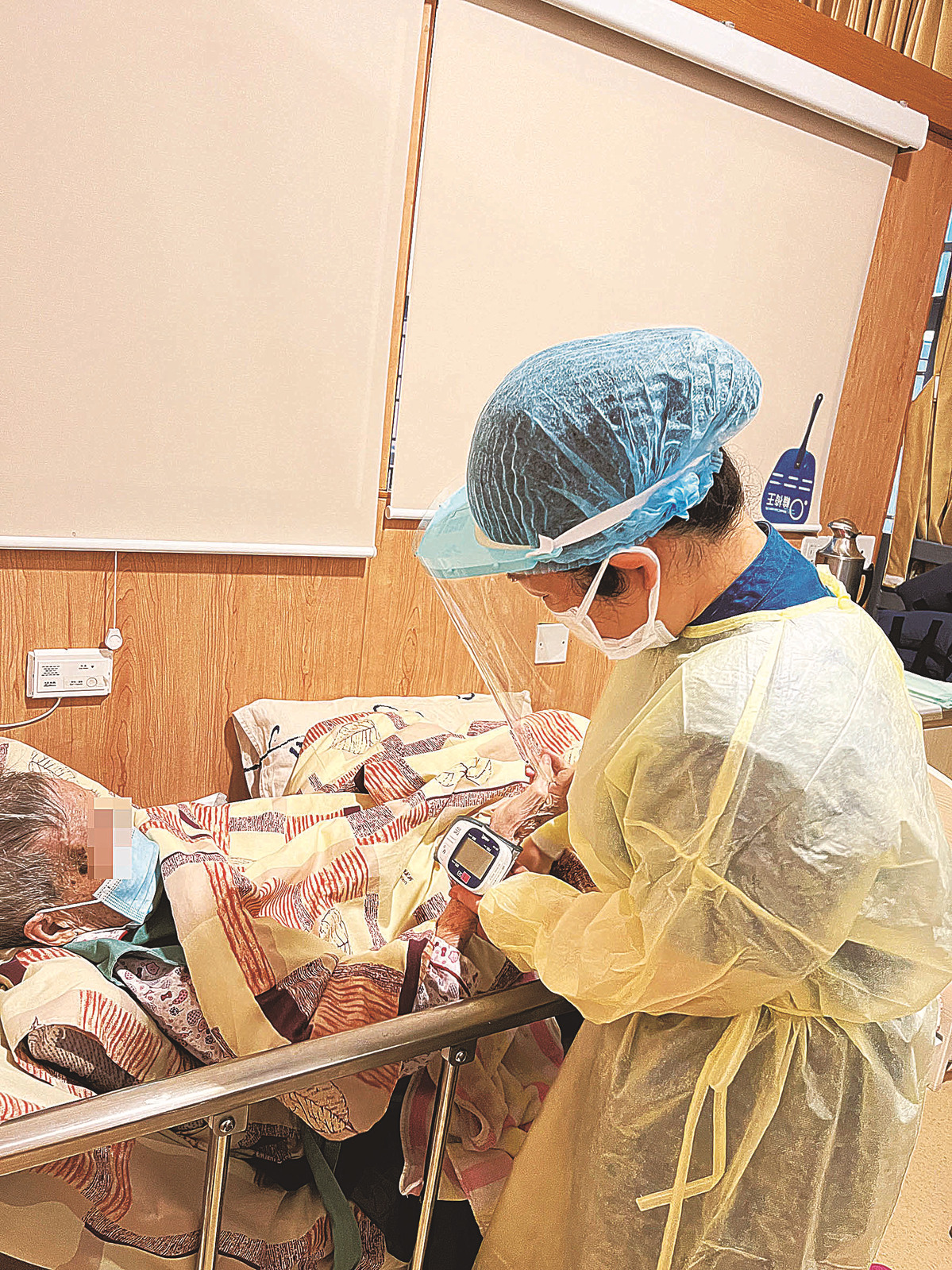'Ignorance is bliss' may well be true for sick seniors


Editor's Note:China Daily puts the spotlight on regular people in Hong Kong, who share their firsthand accounts of their fight with the virus and how they assisted others in need in the city.
Lui Pak-yuen, son of an 89-year-old nursing home resident
My 89-year-old mom may have been one of the few people who didn't have a clue about what had been going on outside Prosperous Garden, a private nursing home in Tseung Kwan O.
Of course, the hearing-impaired senior knew something had been going on, with caregivers and nurses around her wearing heavy protective gear all the time.
She also constantly asked those around her why she couldn't go out. The nurses would simply tell her that there were germs outside. She seemed satisfied with the answer and left them to their work.
My mom, who uses a wheelchair, was confirmed infected with COVID-19 on March 1. Luckily, she was asymptomatic and quarantined at the nursing home, which I think was a blessing as she was in the trusted hands of familiar faces and provided with good care.
She was using traditional Chinese medicine-in which she is a firm believer-when her infection was confirmed.
Apart from being unable to watch her favorite soap opera, she seemed to understand and adapt quite well to the fact that she needed to take TCM regularly. She wheeled herself to the window, and watching the scenery seemed to make up for missing the soap opera.
Unlike many of the older adults in residential care, she didn't lose her appetite. The nurse told me that she had even asked for another bowl of sesame paste, a Cantonese specialty, during afternoon tea.
On March 17, it was a relief to hear that she had tested negative. However, I was fighting my own COVID battle. On March 13, I had also tested positive, but I'd had one shot of the COVID vaccine just in time.
My mother has high blood pressure, plus high levels of cholesterol and blood glucose. I had to send her to the residential care home when she broke her leg in August. She has hardly been able to walk since then.
Before the epidemic, I visited her at least once a week. Sometimes I brought her homemade soup and her favorite rice noodle rolls without fillings.
With the epidemic raging, I can only talk to her via video calls. I try to avoid discussing the outbreak with her as that is all people seem to be talking about these days.
I ask how she has been, whether she is down or if she recognizes me. The conversation is like those she and I had decades ago, except that we have switched roles. It used to be her who was keen to know about my life.
The situation is better than it was with SARS in 2003, when the city descended into panic.
Then, there were no daily news briefings to help people understand what was going on. There were not so many relief measures taken by the government for residents at that time, either, or the thousands of volunteers to help distribute anti-epidemic supplies to those in need.
The support from the central government also boosted my confidence about beating the disease.
An enormous grin spread across my mother's face when I told her that when the epidemic subsides, I will take her for yum cha (a traditional Cantonese brunch), her favorite outing, and we will order her favorite dim sum. A visit to the parks is also on our post-epidemic list.
We can beat the pandemic if we stay together and are strong. So let's leave the rest to time.
Lui Pak-yuen spoke with Shadow Li.




































